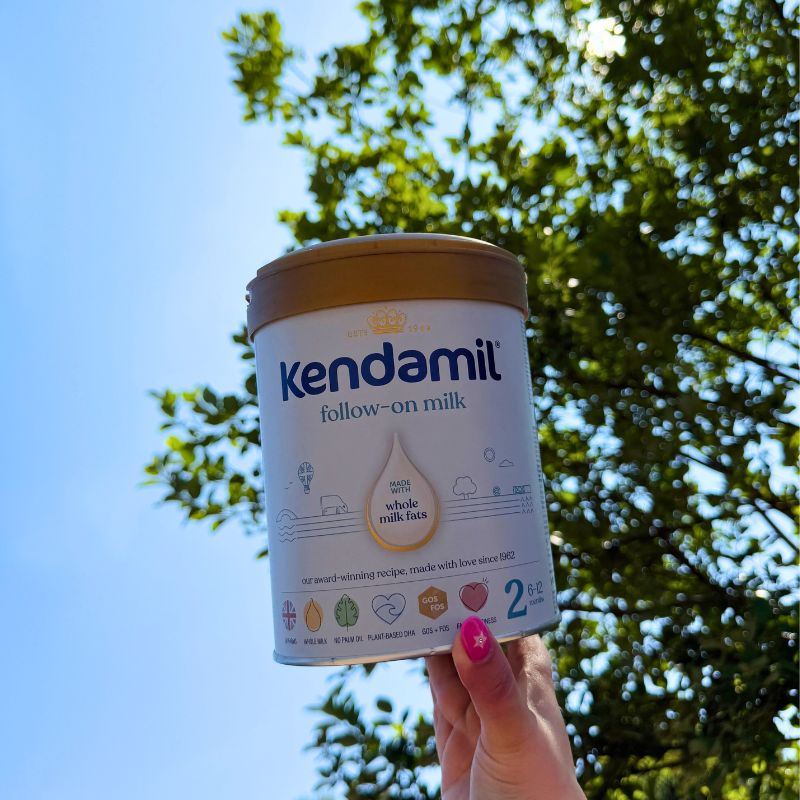Incorporating tummy time into your daily routine from when baby is a newborn is really important for getting their development off to a good start. In this guide, we’ll explore the the benefits tummy time offers, how to get started, and some tips to make it a fun experience for your little one.
The importance of tummy time and benefits of tummy time
What is tummy time and why is it important?
Tummy time involves placing your baby on their stomach while they are awake and with full supervision. A bit of tummy time a day is great for their overall development, as it helps them build the muscles needed for future milestones.
What are the benefits of tummy time for babies?
- Physical development: Tummy time is an excellent exercise for strengthening a baby’s neck, shoulders, arms, and back muscles. It prepares them for crucial motor skills like lifting their head, rolling over, sitting, and crawling.
- Prevent flat head syndrome: Regular tummy time helps prevent positional plagiocephaly, also known as flat head syndrome, which can occur if a baby spends too much time lying on their back.
- Muscle development: By pushing against the floor, babies help build the muscle strength in their upper bodies, which are essential for various physical activities.
- Motor skills: Tummy time encourages the development of motor skills, including head lifting, turning, and eventually, crawling and walking.
- Sensory development: Being on their tummy allows babies to experience different textures and surfaces, aiding their sensory development.
- Visual development: As babies lift their heads and look around, they develop their visual tracking and focusing skills.
- Cognitive development: Tummy time stimulates a baby’s curiosity and interaction with their environment, promoting cognitive growth.
How to do tummy time and when to start?
You can start tummy time from day one, yep this includes newborns. Here is a breakdown of how often and for how long baby can do tummy time depending on their age:
Newborns (0-1 Month):
- Frequency: Up to 3 sessions a day.
- Duration: Each session should last about 5 minutes.
- Developmental benefits: Tummy time for newborns can begin with very short sessions on your chest or lap. It will allow baby to get used to the position and start developing their neck and shoulder muscles. By 1 month, babies may start to lift their heads briefly. Parents can encourage this by engaging with baby through eye contact and soothing words of encouragement. By 2 months, babies should be able to hold their heads up briefly.
3 Months:
- Frequency: Multiple sessions throughout the day.
- Duration: Aim for a total of 20-30 minutes per day, split over multiple sessions.
- Developmental benefits: By this age, babies may begin to lift their heads and start pushing up on their arms, showing more upper body strength. They are more alert and enjoy looking around, which can be encouraged by placing toys or mirrors within their line of sight during tummy time.
6 Months:
- Frequency: Several sessions throughout the day.
- Duration: Gradually increase tummy time to about 60 minutes total per day.
- Developmental benefits: Babies at this stage continue to build strength and coordination. They may start to roll over, pivot, and reach for toys, engaging more actively during tummy time.
7 months+:
As babies approach the crawling stage, they are likely to spend less time in structured tummy time sessions. This is because they become more mobile and prefer to be on the move, exploring their environment. However, the foundation built during tummy time is crucial for baby’s physical development and motor skills.
Check out this great video from early years expert, Becca, on how to introduce tummy time to your newborn.
Tummy time safety tips
When it comes to making sure baby is safe and comfortable during tummy time, avoid putting them down on their tummy immediately after a feed and wait until they’re fully awake and active. You should supervise baby during tummy time at all times.
Tummy time activities and how to make it more enjoyable for baby
Tummy Time Toys
- Play mat or blanket: Use a colourful, engaging infant activity mat or a soft blanket. These mats often have various textures and attached toys that can stimulate your baby's senses.
- High contrast colour patterns and cards: Babies are drawn to high-contrast colours. Use cards or books with black-and-white or brightly coloured patterns to catch their attention.
- Water play mats: These mats are filled with water and often have floating toys inside. They provide a fun, tactile experience that can keep your baby entertained while they practise tummy time. Be sure to check the safety instructions, and that they are age appropriate for your little one.
- Sensory toys & books: Use toys and books with various textures, sounds, and colours. Sensory toys that crinkle, rattle, or have different textures can keep your baby interested and encourage them to reach and explore.
Tummy Time Positions
- Lay baby on your own chest: This is especially comforting for newborns. Lay back and place your baby on your chest, tummy down, so they can look at your face. This position is both engaging and soothing.
- On a flat play mat or blanket: Ensure the surface is firm but comfortable. A designated tummy time mat can provide a clean and safe area for your baby to explore.
- Use a tummy time pillow: These are specially designed to support your baby during tummy time, making it easier for them to lift their heads. A rolled-up towel can also serve this purpose in a pinch.
Tummy Time Activities
- Eye-level smiles: Get down on the floor with your baby and make eye contact. Your face and voice are incredibly interesting to them. Smile, talk, and make silly faces to keep them engaged.
- Mirror play: Use a baby safe mirror toy to let your baby see their reflection. Babies often find their own reflection fascinating, which can encourage them to lift their heads and push up.
- Reach and grab with toys: Place toys just within reach to encourage your baby to stretch and grab. You can move the toys around to prompt your baby to follow them with their eyes and hands, promoting movement and muscle development.
Early years expert, Becca, has covered all of this and more in this handy video on newborn development activities if you’re looking for other ways to engage your newborn in play:
What should I do if my baby hates tummy time?
Sometimes babies might not be big fans of tummy time, and this can bring up some concerns and challenges for parents. They might not like it for a few reasons, so here are some tips to help:
- Start slow and gradual: If your baby is new to tummy time, start with just a few minutes at a time and gradually increase the duration as they get more comfortable.
- Be consistent: Aim to incorporate tummy time into your daily routine. Regular practice is key to building strength and comfort.
- Create a fun environment: Make tummy time an interactive and enjoyable experience using the ideas we’ve already spoken about. Use songs, nursery rhymes, and playful sounds to keep your baby entertained.
- Offer encouragement: Praise your baby and show excitement for their efforts. Positive reinforcement can make tummy time a happy and rewarding activity.
- Be patient: Every baby is different. Some may take to tummy time quickly, while others may need more encouragement and practice. Be patient and persistent, and try different activities to see what your baby enjoys most.
Tummy time is an essential part of your baby’s development, offering numerous physical, sensory, and cognitive benefits. By starting early and making tummy time a fun and regular part of your baby’s daily routine, you’re setting the stage for healthy growth and development. Have fun, and be sure to contact your healthcare provider if you have any worries.
For more information on how to play with your baby check out this guide from the NHS.

















